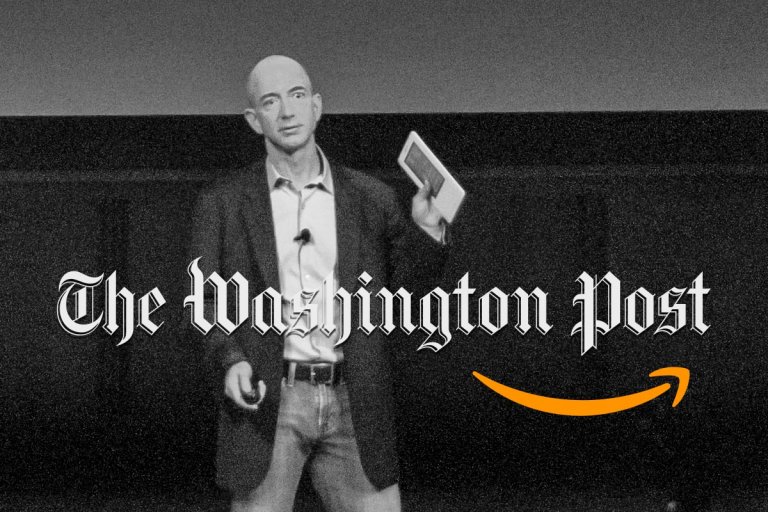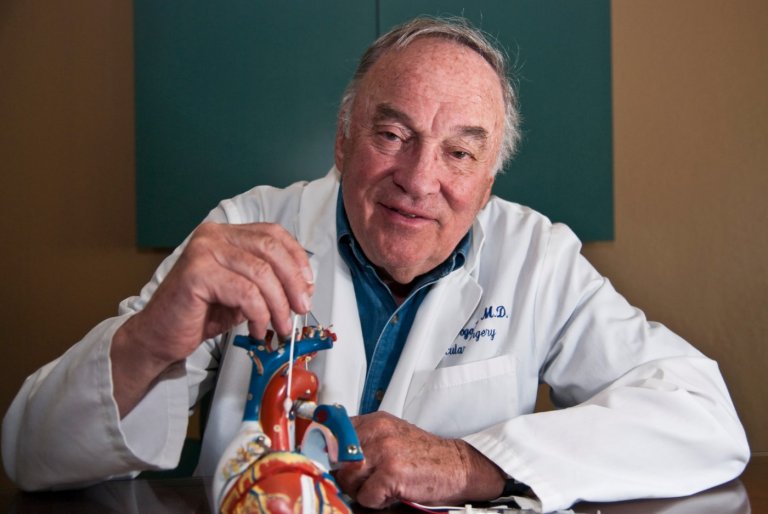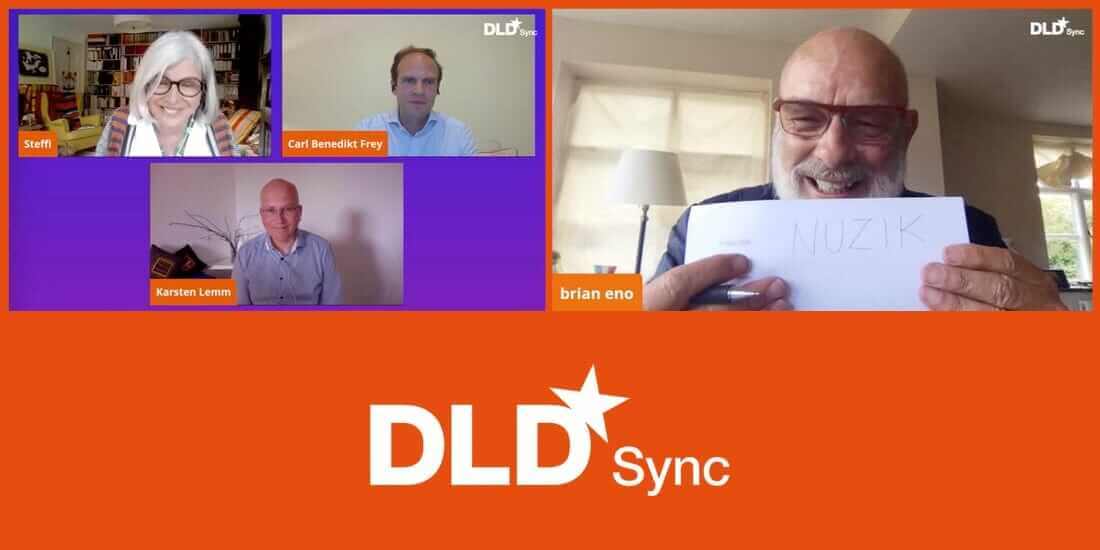
When the coronavirus crisis hit it quickly became obvious that DLD – one of Europe’s most prominent technology conferences – needed a new, virtual discussion format. Since the pandemic made physical events impossible for the foreseeable future, the DLD team created DLD Sync, a series of interactive online sessions with prominent speakers representing the whole spectrum of the conference’s areas of interest – from art and design to business and management, economics and investing, entrepreneurship, science and, of course, digital transformation.
My job has been to take the insights coming out of these hour-long conversations and try to distill them into summaries that capture the essence of each session for people who missed the live event – or may want to watch the session again.
The idea behind the recaps I write is to make it easy for readers to quickly get an overview of core ideas, find quotes and (re)discover memorable moments. All articles include a video recording, so we introduced the Sync Scroll feature: an overview of topics that come up in any given session, along with a time stamp.
I’ve also had the pleasure of moderating a couple of sessions, including DLD Sync no. 1 with Oxford economist Carl Benedikt Frey. We spoke about the impact of Covid-19 on the economy and businesses, how the pandemic might accelerate automation and the future of work in general – a topic I’ve long covered for magazines like Stern and WIRED Germany.
Below is a list of DLD Sync recaps with a brief description of each session – linked to the original articles on DLD News, the website that I edit for DLD. For a full list of Sync sessions – including upcoming ones – please visit the DLD Sync page.
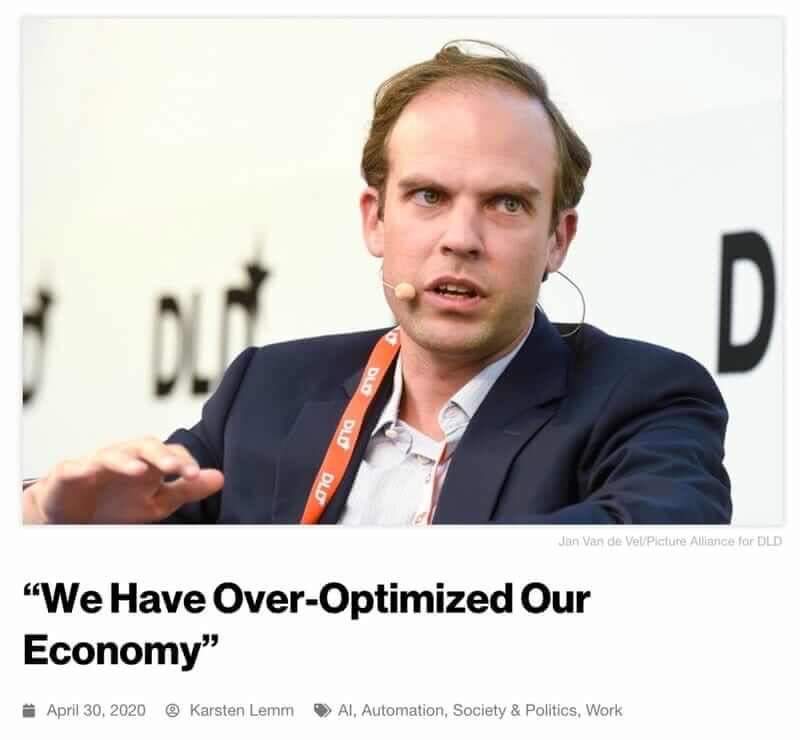
In DLD Sync No. 1, Oxford economist Carl Benedikt Frey explained why the coronavirus pandemic is likely to speed up digital transformation and increase automation. He also put the global crisis into a historic context and explained why countries with a strong social safety net are better positioned to weather a crisis like the Covid-19 pandemic.
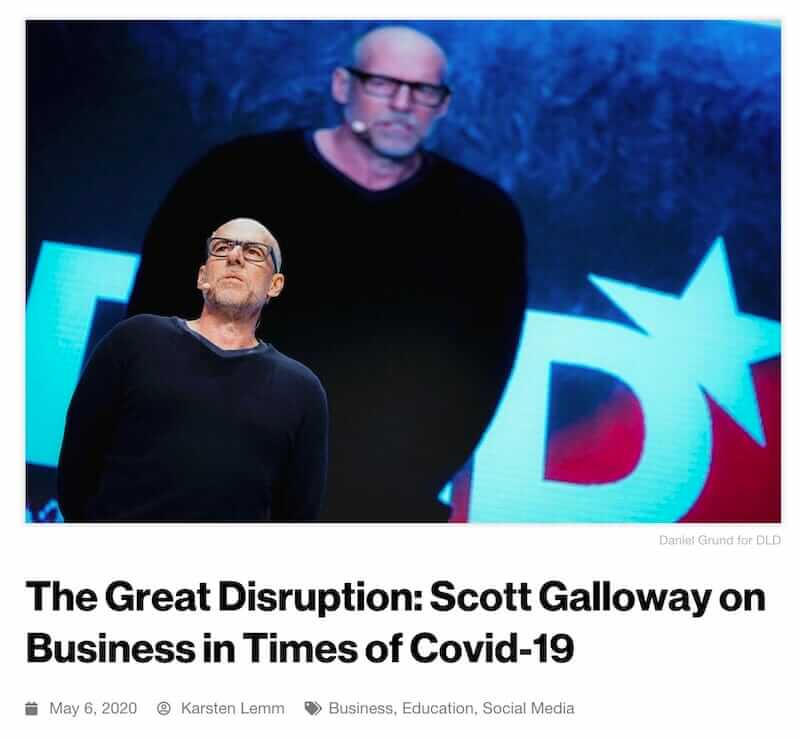
NYU marketing professor Scott Galloway has been an audience favorite at DLD conferences for years. His presentations, packed with slides and predictions, are equally exciting and thought-provoking. You may not agree with everything Scott says but you’re sure to come away from his talks with fresh ideas – which explains the enormous success of his newsletter and podcast (together with DLD alumn Kara Swisher).
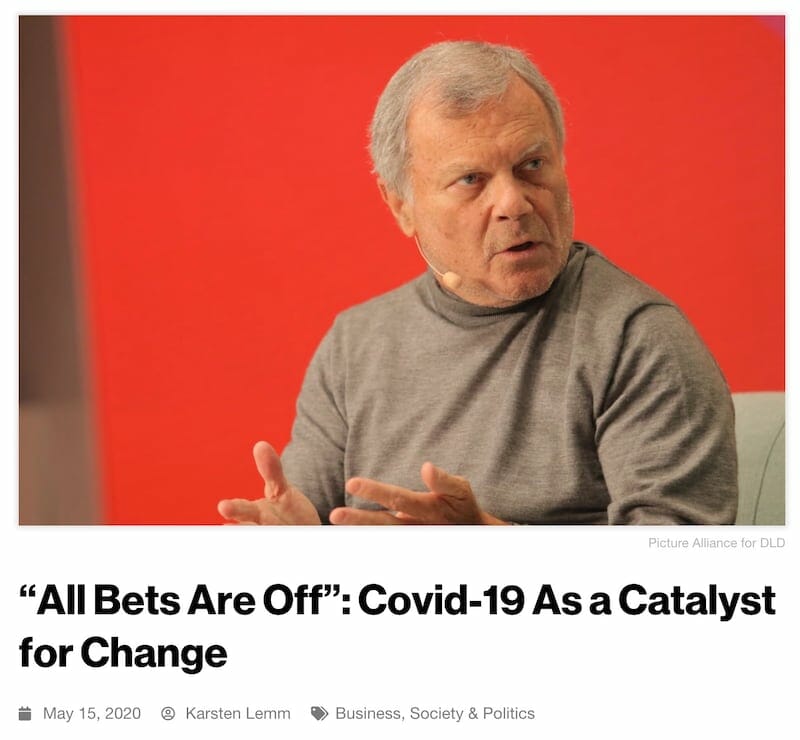
Sir Martin Sorrell, Executive Chairman of S4 Capital and longtime CEO of advertising giant WPP, didn’t hold back in this DLD Sync session: He predicted the coronavirus crisis will bring higher taxes for companies and the wealthy, called for better cooperation between the U.S. and China, and saw big changes coming to companies that have so far resisted digital transformation.
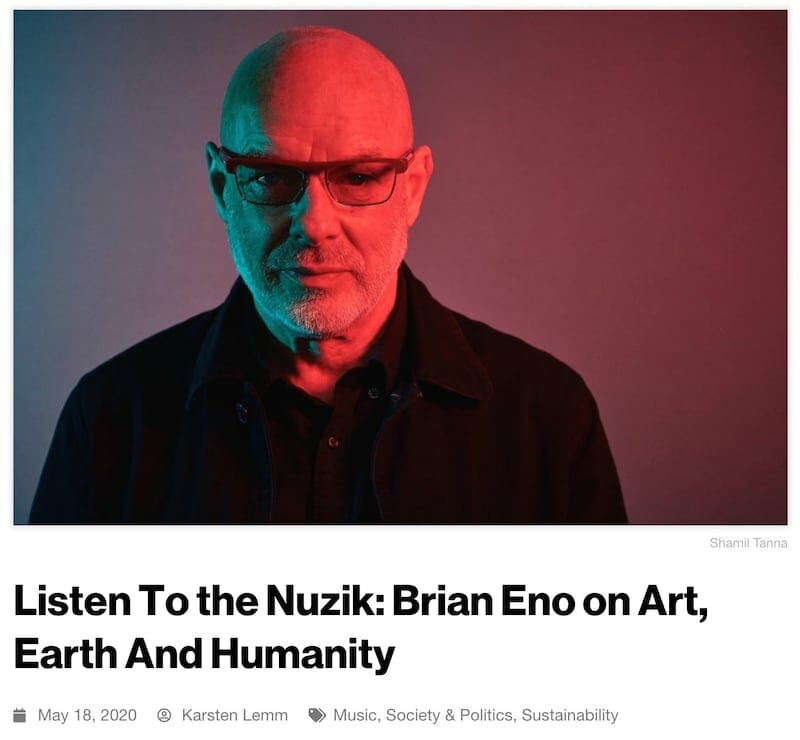
I remember being wowed by Brian Eno when I saw him, years ago, at the Long Now Foundation in San Francisco. His conversation with Internet pioneer Stewart Brand managed to be deeply engaging while rising to lofty intellectual heights, traveling in all directions, yet never failing to bring the audience along. Brian Eno’s DLD Sync session was all that and more – one of my personal favorites so far. Just watch and be prepared to be wowed as well.
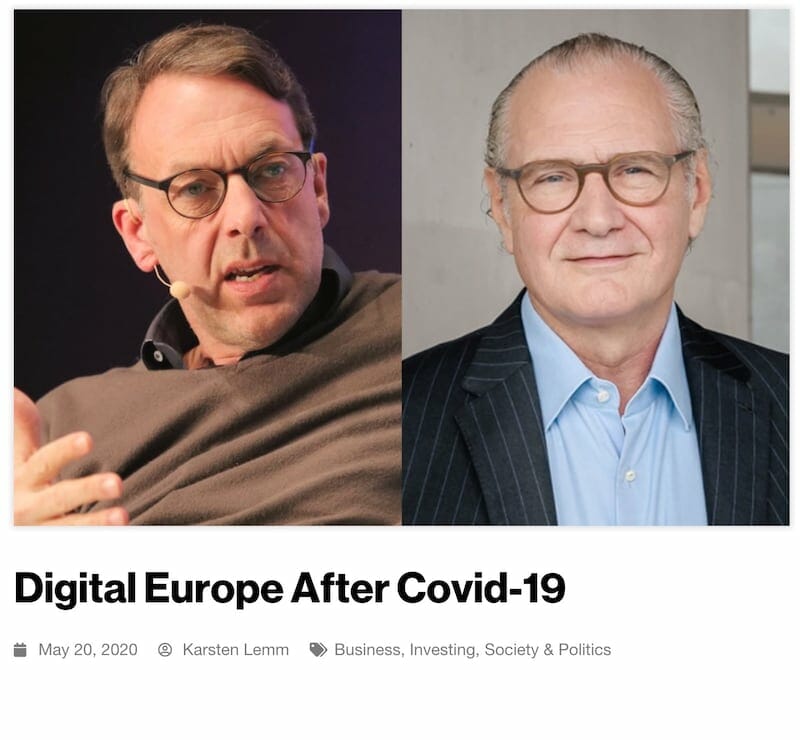
This Sync session was all about entrepreneurship and business. It brought together investor Klaus Hommels – founder of Lakestar, one of Europe’s leading VC firms – and Merck CEO Stefan Oschmann. The conversation, which was moderated by Handelsblatt Editor-in-Chief Sebastian Matthes, included European biotech startups racing to develop a Covid-19 vaccine, preparing for a comeback of the European economy and making the old continent fit for new business opportunities.
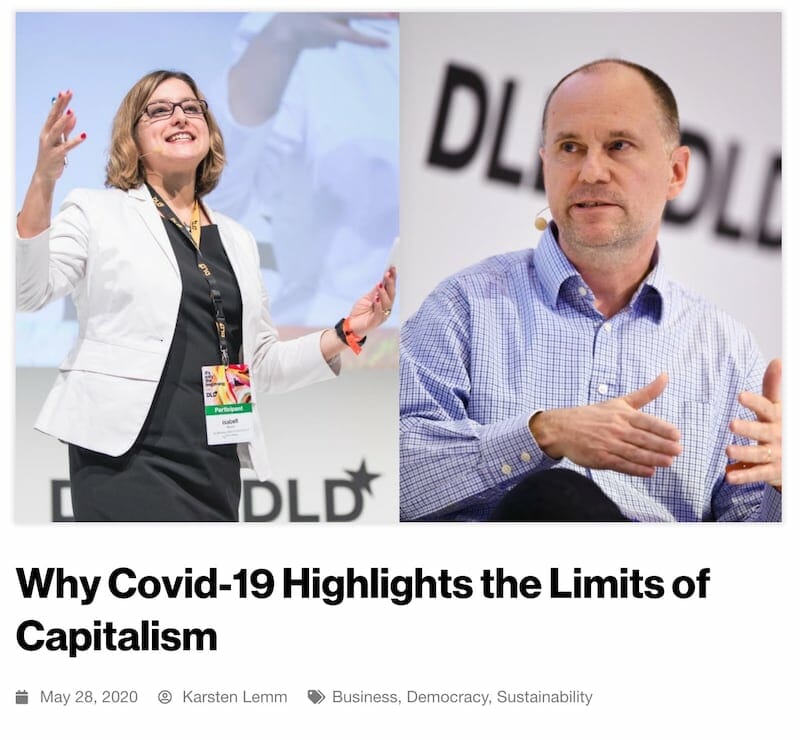
If you want to optimize for efficiency there’s nothing better than free markets in combination with technology: The drive for profits is likely to “cut the slack” and deliver results. But what if you need to plan for the long term, when there’s no immediate business incentive for managers and investors? What if you need to prepare for once-in-a-lifetime events like a global pandemic? What are the limits of the market economy, and which alternatives might be better? This DLD Sync session with economist Isabell Welpe and investor Albert Wenger took a deep dive into such issues without ever being boring – highly recommended. Be sure to check out Albert’s book Wold After Capital as well, which is free to read in any browser.
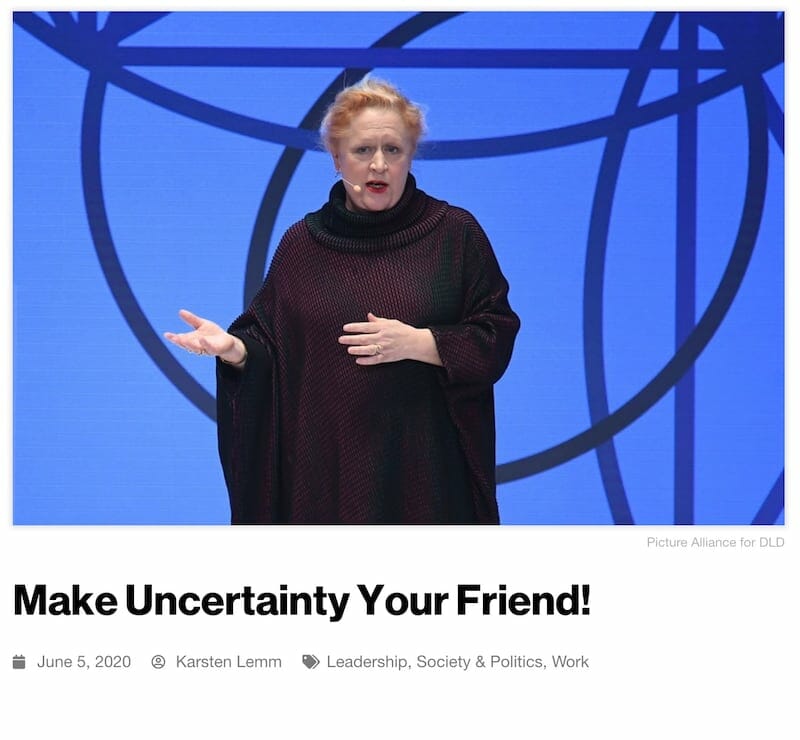
Oh, the anxiety! Even if you’ve managed to keep your job and stay in good health, you may not be able to escape the fear and dread that tomorrow may bring something worse than today. As a way to calm down, Margaret Heffernan, a renowned British author and entrepreneur, recommends accepting the fact that life is full of uncertainties – and find ways to deal with it. She knows this is easier said than done but has many good arguments on her side. Watch her highly inspiring DLD Sync talk and you’re almost guaranteed to feel better when you go to bed tonight.
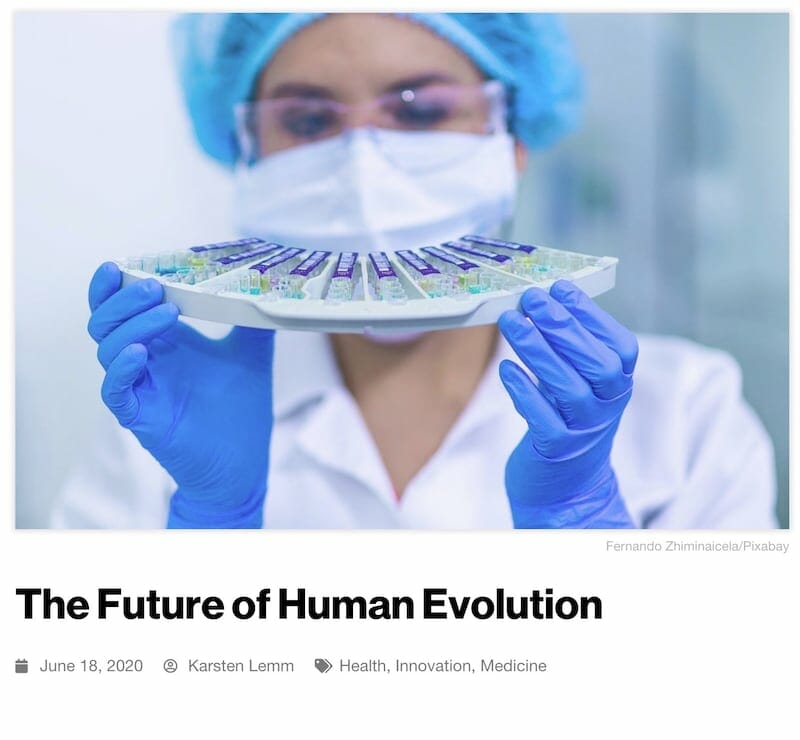
It can be hard to grasp how far-reaching the revolution will be that we’re currently seeing in the field of biotechnology. Gene editing, in particular, has enormous potential to cure chronic diseases and allow humans to write the next chapters of evolution themselves. This DLD Sync session brought together Harvard researcher George Church, one of the world’s best known experts in this field, with Aanika co-founder Ellen Jorgensen and Jamie Metzl, author of Hacking Darwin. Since I’m not a biologist myself, I was glad that I had some background knowledge from my recent interview with UC Berkeley researcher Jodi Halpern – it made certain passages of this Sync session easier to understand.
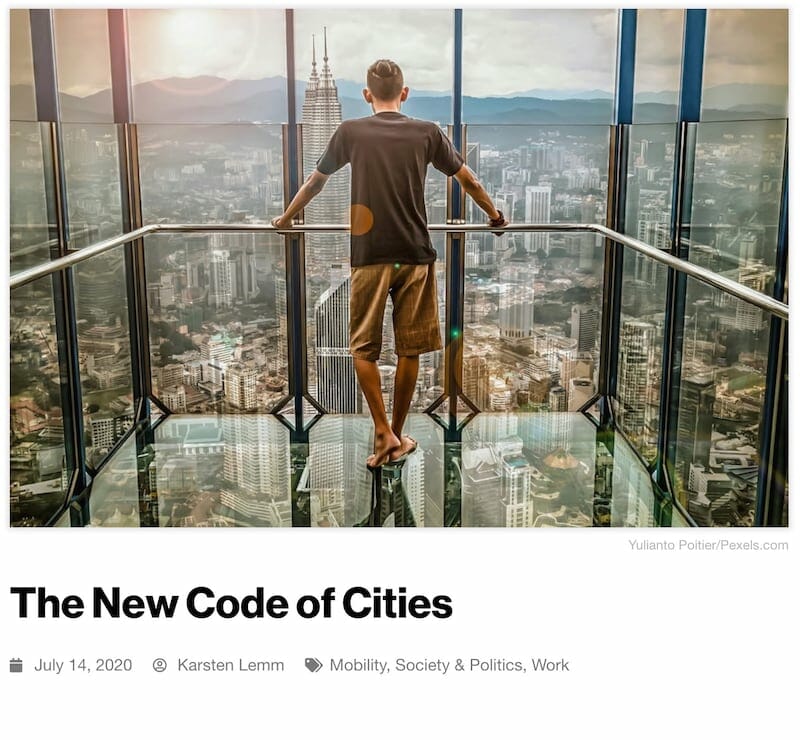
If more and more people work from home, what will that mean for offices and cities? Will commuting give way to pacing back and forth between kitchen, couch and the desk in your home office? Carlo Ratti, acclaimed architect and Director of MIT’s Senseable City Lab, traded ideas with James Ludwig, Vice President of Global Design and Product Engineering at Steelcase, in this Sync session which was equally informative and entertaining.
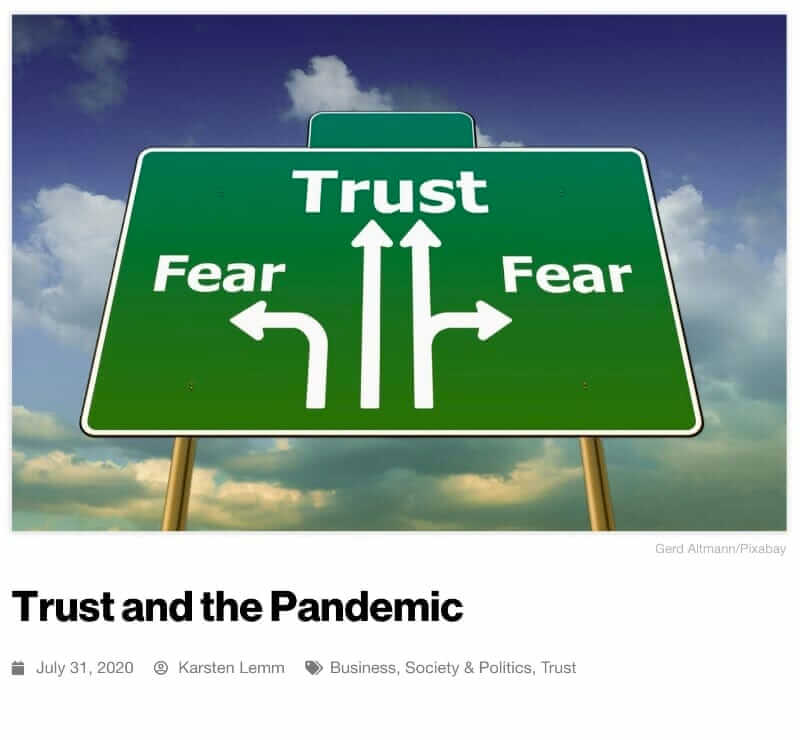
For 20 years, global communications giant Edelman has measured people’s trust in business and institutions via regular surveys, published in its Edelman Trust Barometer. The Covid-19 pandemic brought a surprise: For the first time, people around the world showed more trust in government than in NGOs or businesses. CEO Richard Edelman and his daughter Margot, who’s in charge of the company’s technology consulting business, gave reasons for the sudden about-turn and explained what brands and business leaders need to do to step up their game.
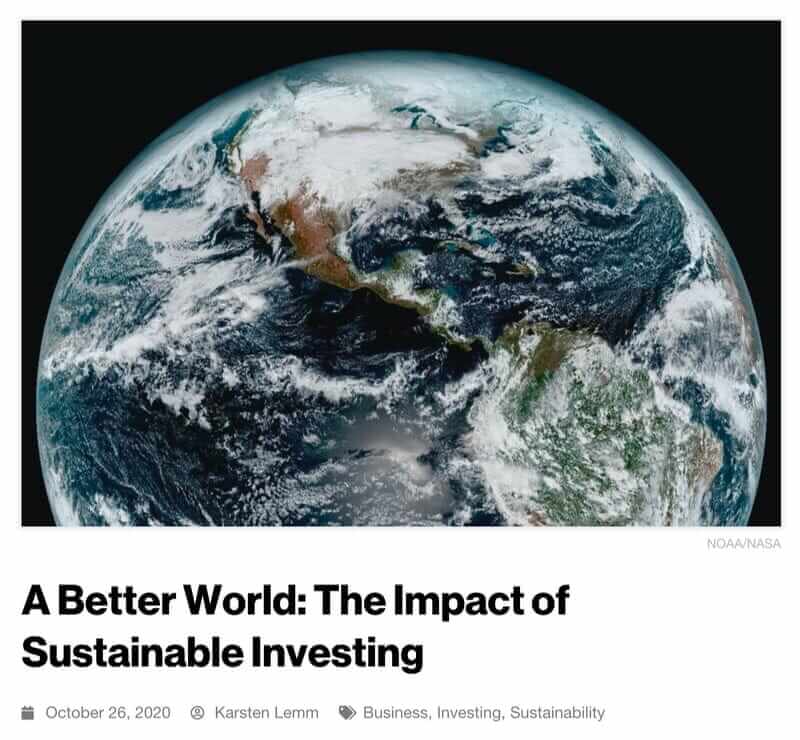
$30 trillion is an astonishing number – larger than the economies of the U.S., Japan and Germany combined, with cash to spare. This enormous amount of money is chasing investment opportunities considered to be responsible and sustainable, as defined by the cryptic abbreviation ESG (short for environmental, social and governance). Trouble is, currently companies can easily claim to adhere to the highest moral standards when, in fact, they’re not – because there’s little transparency around their actual impact on society and the environment. Enter Sir Ronald Cohen, a pioneer of impact investing, who’s working with a team at Harvard Business School to shine a light into the darkness.
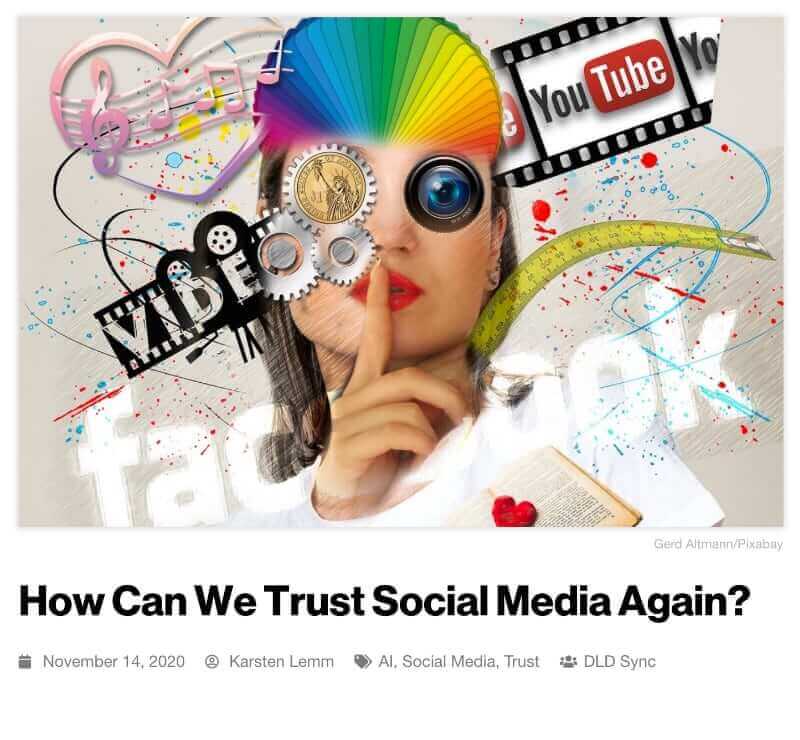
Why have so many discussions about politics, society and even science become so toxic, so polarized? Much of the explanation has to do with social media and algorithmic optimization – meaning Facebook, YouTube, Instagram & Co. are largely serving us the content we want to see, watch, hear. This article builds partly on a DLD Sync conversation I had with British author Rachel Botsman, who has been exploring the importance of trust for years. At DLD Munich, she gave a wonderful talk about technology and innovation depending on “leaps of trust”. In our DLD Sync session she challenged me about my own beliefs and explained why social media have become so powerful in convincing us that certain things are real. Even when they’re completely invented.
Please visit the DLD Sync page for an overview of all sessions, including video archive and upcoming events.
